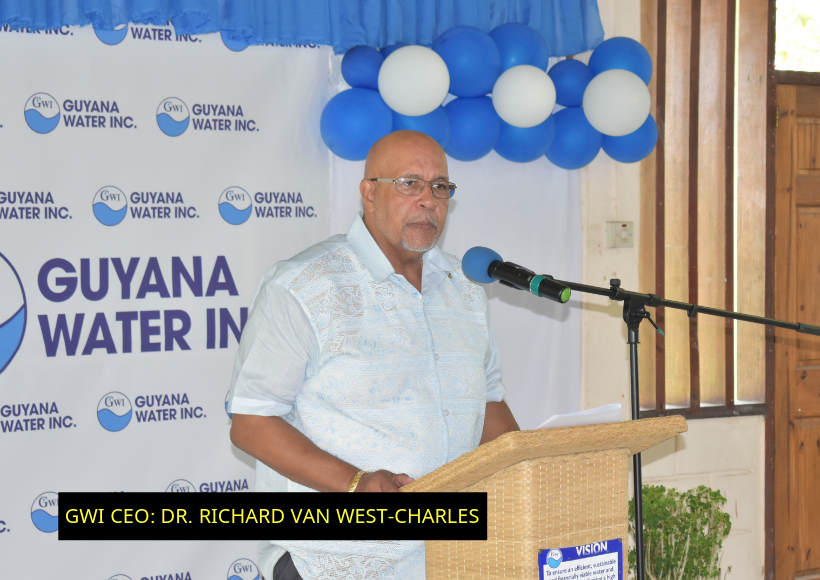Three hundred and thirty-five homes will, for the first time, have flush toilets equipped with septic tanks and hand-wash sinks, free of cost. This will be made possible through the signing of 10 of 12 contracts. Altogether, the 12 contracts total approximately US$1M for the supply and installation of septic tanks in the Water Supply and Sanitation Infrastructure Improvement Program (WSSIIP) areas.
The contracts were signed between the contractors and the Guyana Water Incorporated (GWI) as the executing agency and are being funded by the Government of Guyana via an Inter-American Development Bank (IDB) loan and matching grant from the European Union (EU).
Among the WSSIIP communities for which contracts were awarded are Cornelia Ida to De Kinderen on the West Coast of Demerara; Diamond to Herstelling on the East Bank of Demerara and Sheet Anchor to No. 19; and Good Banana Land, East Berbice. The two remaining contracts are for Georgetown and have been approved for award.
Construction and testing of the new facilities which comprise the flush toilet, septic tank and hand-wash sink, are expected to take four to nine months for completion, beginning September 2019.
The 335 beneficiaries in these areas make up phase one of this project. It satisfies one component of WSSIIP that speaks to improving access to sanitation services for low income households, by assisting in the replacement of their pit latrine with a septic tank and flush toilet system.
The beneficiaries were selected based on the criteria outlined for the application process.
Invitations for applications were advertised via various media such as newspapers, television, radio and social media for the period May 15 – June 16, 2018 and further extended for an additional month.
Application forms were available in all the programme areas at Regional Democratic Councils, Neighbourhood Democratic Councils and GWI offices.
The mandatory criteria for consideration of applicants included the following: residence for which application is made must be in a programme area, existing sanitary facility is a pit latrine or less and applicant must have legal ownership/occupancy of property.
Additionally, part of the primary criteria were for single mothers, teenage girls/elderly/disabled persons and to consider the financial status of households among other key areas.
And lastly, the secondary criteria looked at the households’ willingness to demolish their pit latrine and whether there was any immediate threat to health or the environment.
As a result, those identified as beneficiaries would have satisfied these criteria as outlined by the consultant on the project, since many of them have endured long periods of unsanitary conditions through the use of pit latrines and have had financial and other difficulties constructing septic tanks on their own.
The realisation of this project aligns well with GWI’s strategic plan and Sustainable Development Goal number 6, which speaks to ensuring the “availability and sustainable management of water and sanitation for all” by the year 2030. GWI however, will continue to work with all available partners with the aim of achieving this goal by 2025.













